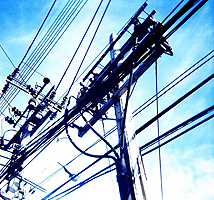Listen

A study from utility-supported Electric Power Research Institute says improvements in energy efficiency could slow the growth of electricity demand over the next two decades by up to 22 per cent. John Berger with Standard Renewable Energy suggests that number could be much higher.
“It actually sounds rather conservative. Savings here could be tremendous. I mean, we have customers — myself included — that have power bills that are 70, 80 per cent less than when we started. So 22 per cent to me, especially when you can do things in insulation and air conditioning very quickly: slight behavior change — turning out lights and so forth that our power cost monitor does for you — those things can easily get to 20, 30 per cent, just right off the bat.”
The Electric Power Research Institute study says investments in efficiency to get the power savings are expected to cost utilities between $19 and $47 billion between now and 2030. Most of the savings would be achieved by new building codes, tougher appliance and lighting standards and a phase-out of less efficient equipment to heat and cool buildings. Houston-based SRE helps homeowners and companies achieve energy efficiency.
“We do an energy audit on your home. And that gives us an idea, a complete roadmap of exactly what is going on in your home — what’s going wrong, what’s going right. and then we make a list of suggestions about what you can do to get your utility bill down. For instance, insulation, you know, high-efficiency air conditioning, power cost monitors — we have some really neat new technology there. We’ve got solar, of course, and then we can also get you a list of all the rebates and tax incentives and tax credits that are out there. And then we do all the installation ourselves.”
Berger says our national energy policy has been “use up everybody else’s first,” but the former FERC member is optimistic that President-elect Barack Obama understands the scope of the nation’s energy problems.
Ed Mayberry, KUHF Houston Public Radio News.

 60 °F
60 °F